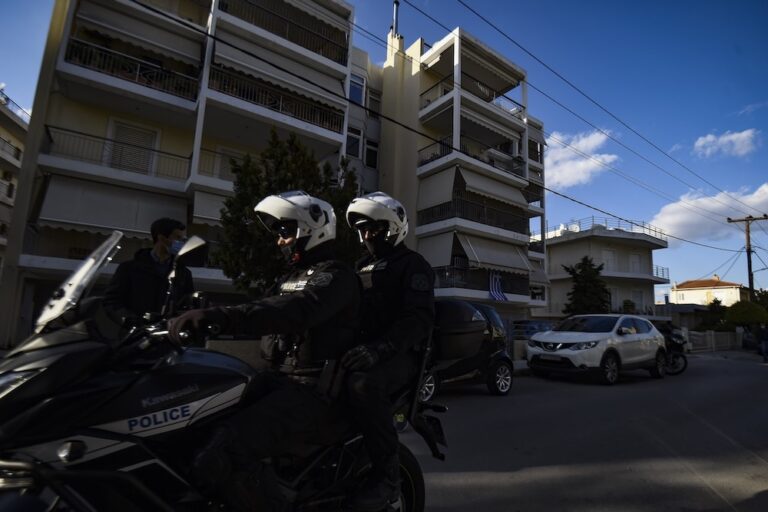(GHM/IFEX) – 2 May 2009 – The Greek Helsinki Monitor (GHM), on the occasion of tomorrow’s World Press Freedom Day, denounces the abuse of press freedom by Greece’s largest newspaper, which systematically attacks academics and European Court of Human Rights (ECtHR) judges for views expressed or judgments issued that are perceived by the prevailing nationalist […]
(GHM/IFEX) – 2 May 2009 – The Greek Helsinki Monitor (GHM), on the occasion of tomorrow’s World Press Freedom Day, denounces the abuse of press freedom by Greece’s largest newspaper, which systematically attacks academics and European Court of Human Rights (ECtHR) judges for views expressed or judgments issued that are perceived by the prevailing nationalist hysteria as “anti-Greek.” What is even more condemnable is that absolutely no one has ever denounced that newspaper’s attacks, not even the colleagues of those targeted.
In its 21 October 2007 issue, the Sunday weekly “Proto Thema” published a front-page announcement for an article: “Shame. Chr. Rozakis, L. Loucaides: Greek Euro-judges – traitors favoring Skopje and Turkey.” The detailed article with pictures of the two judges (Christos Rozakis and Loukis Loucaides are/were respectively the Greek and the Cypriot judges at the ECtHR) and comments of unnamed Greek diplomats was a defamatory attack against the judges for the rulings in the cases of Ouranio Toxo, Agga and Bekir-Ousta et al. that concern the Macedonian and the Turkish minorities. There was absolutely no reaction to that article in Greece.
The same newspaper, in its 29 March, 5 April and 12 April 2009 issues, published a series of attacks against Panteion University Professor Alexis Heraclidis, a former Greek MFA expert, accused of “participating in a filthy campaign against our history” with his “anti-Greek” and “shameful” comments that, in 1919, the Greeks engaged in ethnic cleansing against the Turks in Asia Minor (made in a state TV documentary) and that the Republic of Macedonia has a right to use that name (made in his university work).
A former rector of the same university was quoted calling Heraclidis a “pusher” of Turkish nationalism and “subservient to the interests of the prince and the nationalist hysteria of the neighbour country.” Another academic stated that “we cannot fund such lies.” A well-known historian called him “a traitor and a non-scientist” and a well-known film director and former Left Coalition state list candidate wondered “how come his students have yet to lynch him.” A PASOK student leader said his positions are “inflammatory” and “unacceptable”, while world-renowned composer Mikis Theodorakis wondered if “his name is that of a Greek or a pseudonym of a Turk, a Skopjan or an American, that have orchestrated this wretched and dark effort to destroy us mentally, psychologically, morally and nationally because we refused to follow the instructions.”
There was even a debate in Parliament on 9 April 2009 about the statements of Professor Heraclidis, during which the competent Deputy Minister of Education assured the members of parliament that the current rector of Panteion University wrote to him, stating that “there is no way that the professor’s views represent the views of the university”. The Deputy Minister added that “his views cannot withstand criticism as they lack scholarly validity.” Again, no one came out to defend the academic from anywhere, not even his own university.
These developments confirm what the UN Independent Expert on Minority Issues, Gay McDougall, wrote inter alia in the conclusions of her report on Greece:
“One also senses an interest in promoting a singular national identity. This approach may leave little room for diversity. It can contribute to a climate in which citizens who wish to freely express their ethnic identities face government blockages and, in some instances, intimidation from other individuals or groups. In the northern part of the country some people expressed their view that the term ‘minority’ implies ‘foreign.’ Some consider those who want to identify themselves as a person belonging to a minority ethnic group to be conspirators against the interests of the Greek state.”


